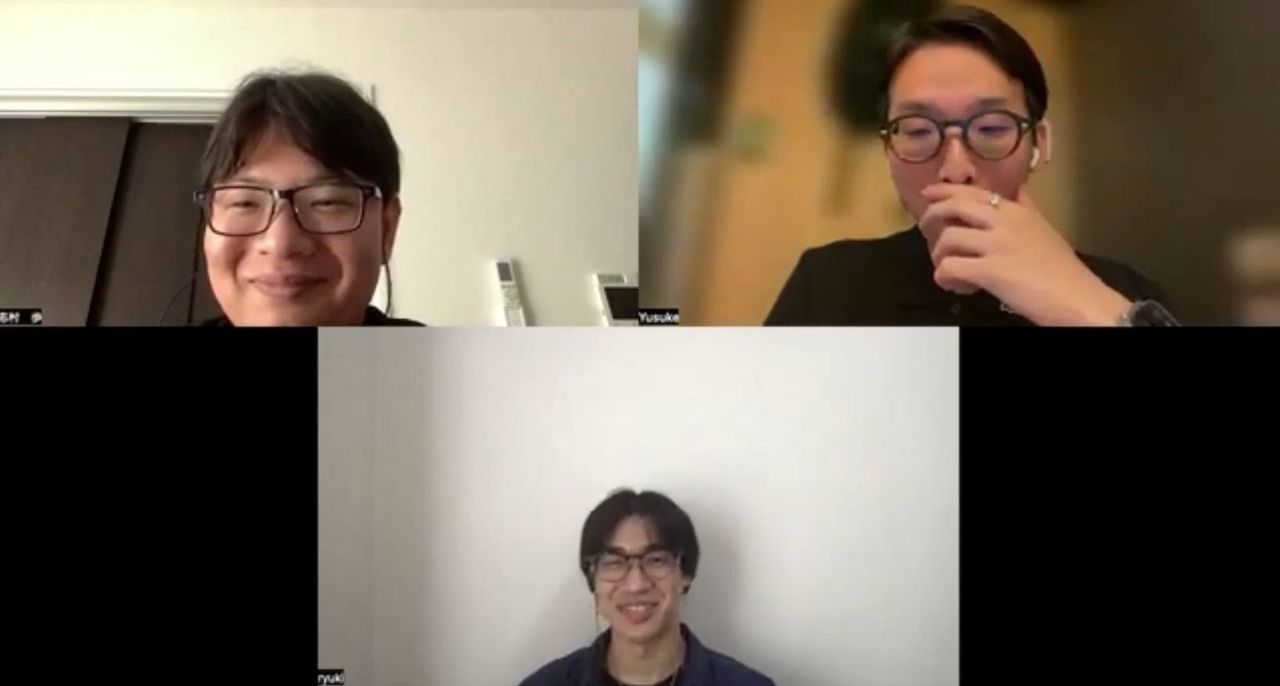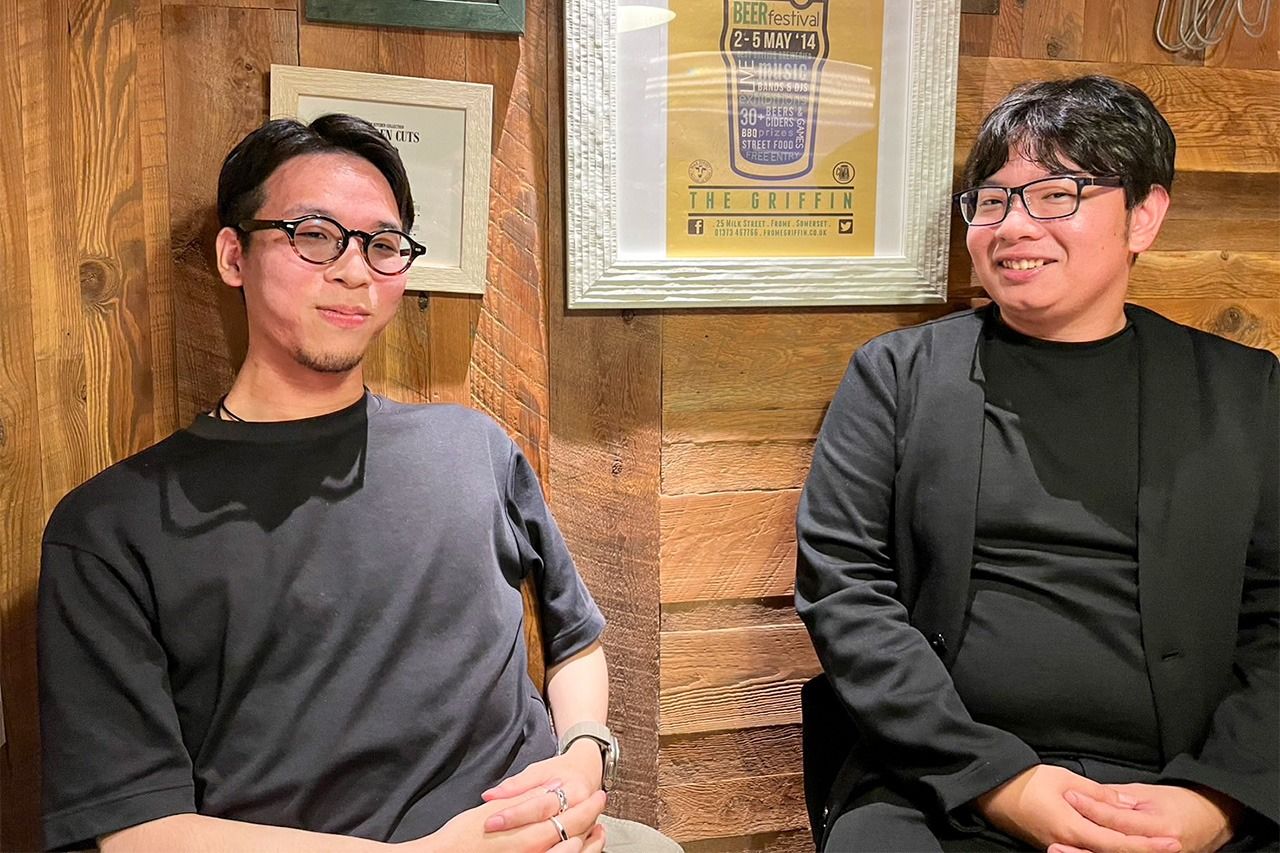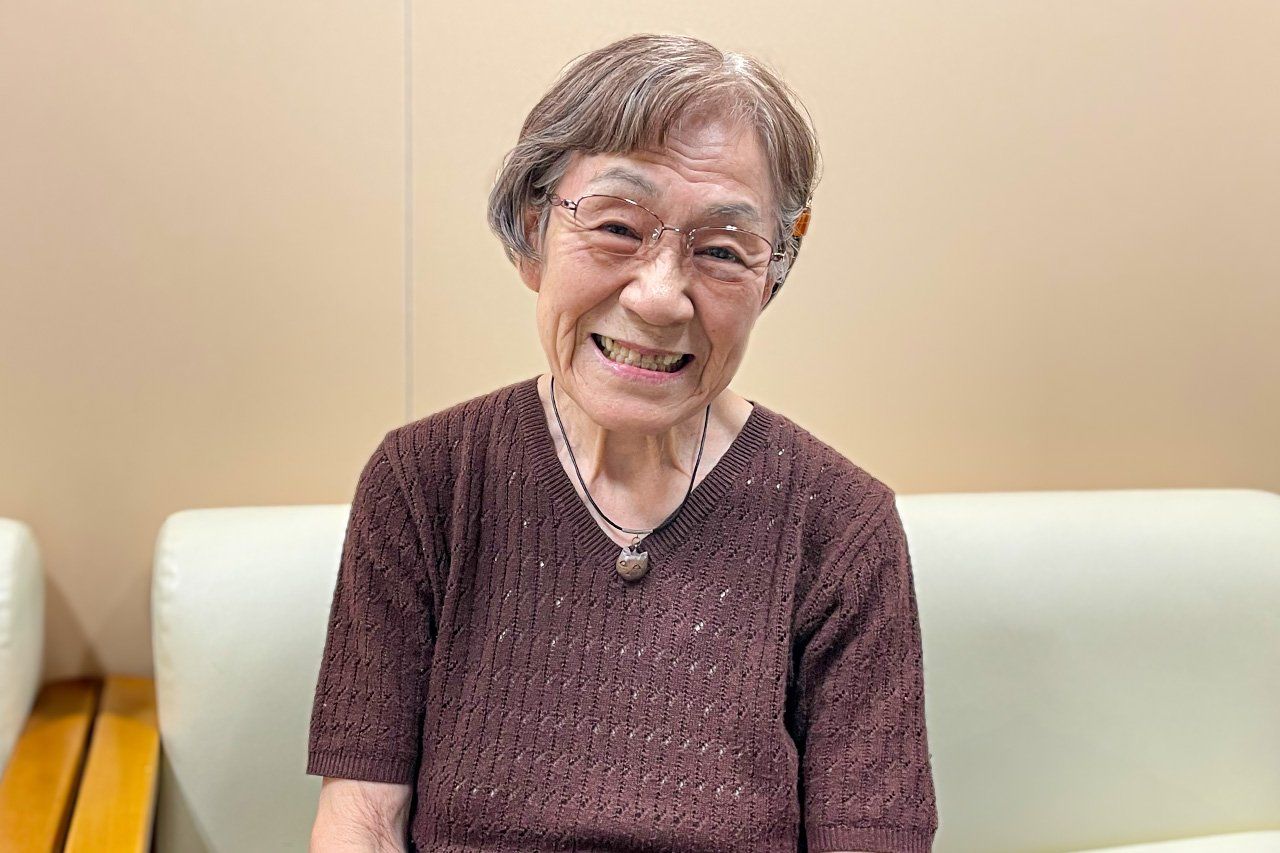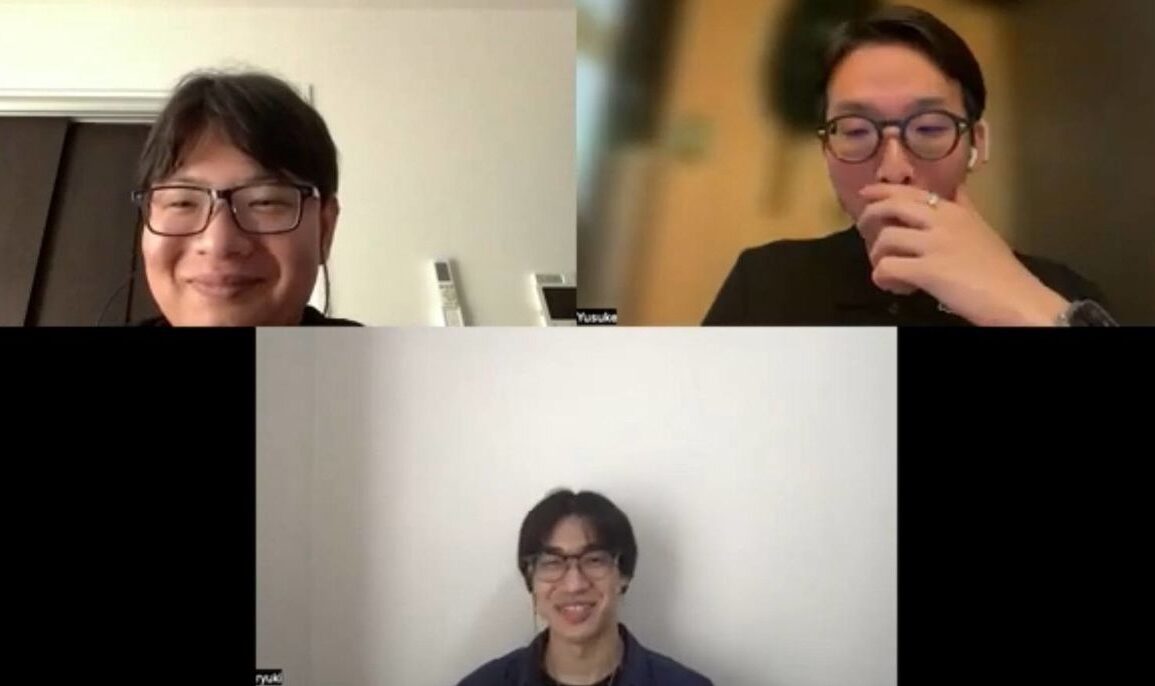This year marks the thirty-eighth anniversary of revisions to Japan’s Civil Code that brought adoptions in the country more in line with international standards and gave greater protections to child adoptees. Many adoptees upon reaching adulthood are turning to social media to share their stories and connect with others in Japan.
A Candid Chat About Adoption
The Origin44 YouTube channel is quickly gaining attention as a place for frank and honest talk about adoption in Japan. Host Shimura Ayumu is joined by fellow twentysomethings Ryūki and Yūsuke, who freely share their thoughts and experiences as adoptees.
One such discussion kicks off with Ayumu asking, “What are the benefits of being adopted?”
The answers are sincere and forthright. “It’s kind of like getting a second draw in the parent lottery,” replies Ryūki, provoking laughter from the trio. “But with the advantage of parents having been approved by a third party.” Yūsuke sees things from a different angle, saying, “It enables you to be more objective in family matters. Since you’re not related biologically, you tend to take differences in opinions for granted. When there’s a disagreement about something, it’s easier to keep emotions in check and talk things out.”
Launched in February 2024, the channel has steadily built up its subscriber count. Along with the three regulars, episodes feature appearances from adoptive parents and advocacy organizations, giving people the opportunity to discuss adoption honestly.

Clockwise from upper left, Ayumu, Yūsuke, and Ryūki of the YouTube channel Origin44. (Courtesy Origin44)
Teenage Revelation
Revision of the Japanese Civil Code in 1987 created the special adoption system alongside regular adoptions. Prior to this, adoptees were shown as “adopted son/daughter” on family registers. However, under the special adoption system, which is limited to children below the age of six, an adoptee is registered as a couple’s natural child and all legal links with birth parents are severed. Subsequently, many adoptees are unaware that were not born into the family.
This was the case with Yūsuke, who did not learn that he was adopted until he was 17. He was placed with his adoptive parents while still an infant, and owing to a strong resemblance to his father—they have similar features and are of similar stature—he never once suspected that he was part of an adopted family.
However, the truth came out in a startling way when he was in high school. He was a member of his school’s wind orchestra, and when the group planned a field trip abroad, he applied for a passport. His mother handed him an envelope and told him to give it to the person at the application counter.
The night before going to the passport office, though, he casually opened the envelope. Inside was his family register, which bore the puzzling phrase “date of final and binding judgment under Article 817-2 of the Civil Code.” A quick Internet search on his phone revealed it to be a reference to adoption.
Telling himself that it must be some kind of mistake, Yūsuke went to bed but could not shake his concern. On the way to school the next morning, he searched the phrase over and over, getting the same result each time. His heart began to race as it dawned on him that he might actually be adopted. At school, he showed his family register to his teacher in the hope of clarifying the matter, but found he was too choked up to talk.
Later at the passport office, the clerk at the counter explained in detail to Yūsuke his family register, confirming that he was indeed adopted. Yūsuke kept his revelation to himself at first out of fear that it might damage his relationship with his parents.
Ryūki, by contrast, grew up knowing his mother and his father were not his biological parent. “I was adopted when I was four months old,” he explains. “But even though I was very young, my mom and dad were upfront about my birth parents.” His mother would read to him from a picture book she had made that explained his background. “Being an adoptee was part of my identity, so it’s not something I feel either grateful or resentful about.”
Facing the Truth
For Yūsuke, learning he was adopted stirred up difficult emotions. While in the car with his mother, he got into an argument with her over something trivial, and before he knew it, he blurted out, “You wouldn’t understand. We’re not even related.”
An uncomfortable silence settled over the pair. Yūsuke got out of the car and walked away. He ignored the barrage of worried calls and texts from his mother asking where he was and warning that she would ask the police to help look for him. Her final text read, “Come home by dinner,” which Yūsuke did.
When he got home, a dinner just like any other awaited him on the table. His mother had made his favorite—fried chicken wings. Seeing the meal, Yūsuke recognized that his mother was trying to show that she understood what he was going through.
The topic of adoption did not come up again. When Yūsuke turned 20, though, he became interested in learning about his biological family. He joined an online community for adoptees and learned how to trace his roots using his family register and court records, through which he discovered the name of his birth parents and that he had siblings.
Yūsuke’s parents supported him in his search, offering to visit the relevant agencies with him to uncover his records. However, he says that he does not currently feel the need to find out more, and that in all honesty, he is scared of what he might find.

Yūsuke (left) and Ayumu. (© Gotō Eri)
Birth and Rearing
Yūsuke understands there are differences in opinion about whether a child should be told that they are adopted, but he believes that his parents’ decision not to tell him came at a cost to everyone. “It was hard on them,” he says. “Finding out that I was adopted when and how I did filled me with unease.” A major motivation for him joining Origin44 was to reach out to others who are going through a similar ordeal. “If there is anyone out there who is troubled like I was, I want to share my experience to help them.”
Ayumu, like Ryūki, knew from a young age that he was adopted. When he was 15 he wrote a letter to his birth mother on the recommendation of his adoptive parents and an adoption services group. She wrote back, telling him that she was happily married with one child. She even enclosed a photo of her with her family.
“That really upset me,” recounts Ayumu. “I felt like asking why she didn’t want me but was happy to bring up my younger brother.” He says that once this initial negative reaction passed, though, he grew more objective. “The way I see it now is that it’s not my fault that I was adopted and there’s no point blaming my birth mother, either. With adoption, the priority is on doing what’s best for everyone involved. I’m ok that one parent is able to give birth to a child and that another parent is better able to rear the child.”
Since launching his channel, Ayumu has gained a deeper understanding of the emotional turmoil many adoptees and adoptive parents around Japan experience. When he realized that there are people out there suffering because they have no one to share their feeling with, he and some fellow adoptees started the support organization Tsubame.
“We didn’t choose to be adopted, and it would be a waste to go through life fretting over it,” he says. “I want to create a world where adoptees can accept who they are and be themselves, without concern for how others might view them.”
The Right to Know
Iwasaki Mieko, director of the Osaka branch of the Association for Advancement of Family Care, has spent over 50 years as a case worker. Her organization, a nonprofit supporting adoptive parents and adoptees, receives several enquiries a year from adults who were adopted and who want to find out about their biological families. She says that some only realize that they were adopted when they have children of their own and compare their child’s family register entries with their own, while others have an inkling from a young age but never raise the subject with their parents. Iwasaki is critical of a culture that she says makes it hard for adoptees to broach the subject of adoption with their parents.

Iwasaki Mieko says she wants adoptees to benefit from laws designed to give them information on their biological families. (© Gotō Eri)
Iwasaki explains that there is a way for adoptees to trace their biological family roots using a family register search. When an adoption takes place, a new family register is created for the child at the place where the birth parents are registered under the family name of the adoptive parents and with the child listed as the head of the register. The child is then added to the register of the adoptive parents. If a child wants to know about their birth parents, they can request certain official documents from their old registry, which will show information about their birth parents. This system preserves the rights of adoptees to search for their birth parents and trace their roots.
However, if the birth parents later switch family registers or either joins someone else’s register upon marriage or other circumstance, there is no way of finding their new address or family name. The 2008 amendment to the Family Register Act increased the protections surrounding personal information and made it more difficult to obtain family register information about third parties, even one’s own biological parents. Some adoptees have been turned away by city office staff who refused to listen to their stories. The amount of information that can be accessed by adoptees differs depending on whether their birth mothers switched registers and the degree to which the staff member who serves them understands the system.
“While not all adoptees attempt to find their birth parents, many are compelled to know who their biological mother and father are in order to feel whole,” says Iwasaki. “It is a child’s right to know about his or her own origins. We need to change the way the family register scheme is applied to protect adoptees’ right to know.”
Connecting Overseas
Outside Japan, many adoptees have gone public about their experiences of trying to find their biological families. Alex Gilbert was placed in a Russian orphanage before being adopted by a couple in New Zealand when he was two years old. Today, he runs the web-based non-profit I’m Adopted, which provides a forum for adoptees from New Zealand and elsewhere to connect and share their stories. He also runs a like-named YouTube channel and podcast, and helps adoptees learn about their origins.
Alex began investigating his own roots when he was 18. With support, he found his birth parents in Russia and traveled there to meet them when he was 21. Alex’s biological father did not know he had a son until Alex got in touch with him.
Alex insists that it is the choice of the adoptee whether to search for his or her family. “They should do it when they feel like it,” he says, stressing the importance of relying on the support of friends and others around them. He says that adoptees should only try to open doors when they are ready. “Be prepared for what you find. And be prepared not to find anything, as that can happen.”
He says that through I’m Adopted, he has been able to connect with other adoptees and expand his network, including getting in contact with researchers and people who specialize in adoptions. He is excited for the opportunity to speak with Japanese adoptees as well. “It’s important to connect, no matter where you’re from. The best thing is to support one another.”
(Originally published in Japanese. Editorial assistance by Power News. Banner photo: (from left) Yūsuke, Ayumu, and Ryūki. Courtesy Origin44.)
This post was originally published on this site be sure to check out more of their content









